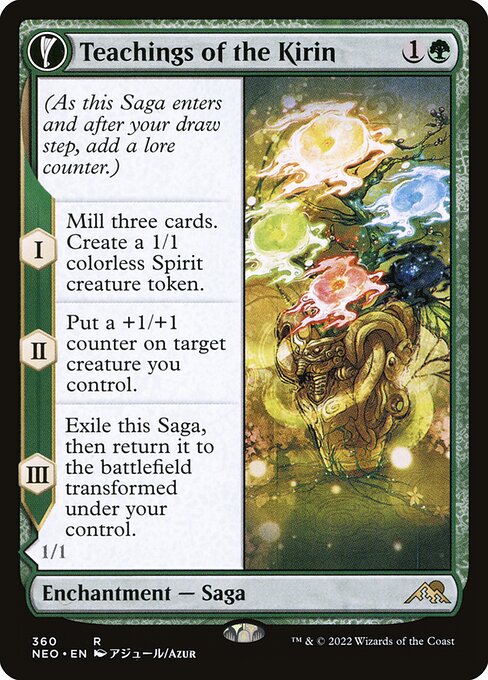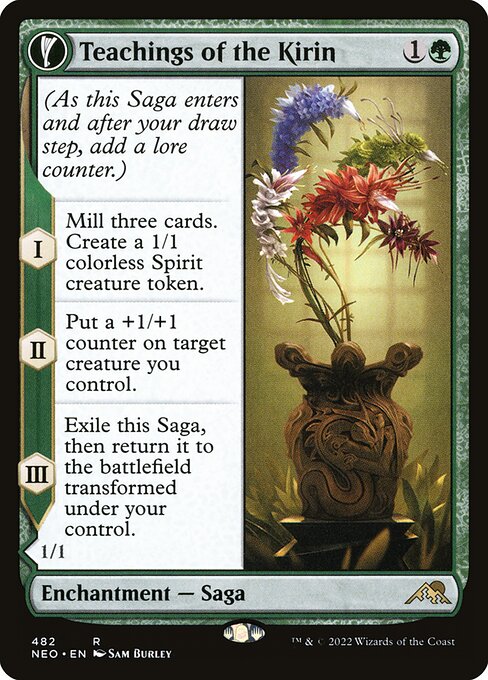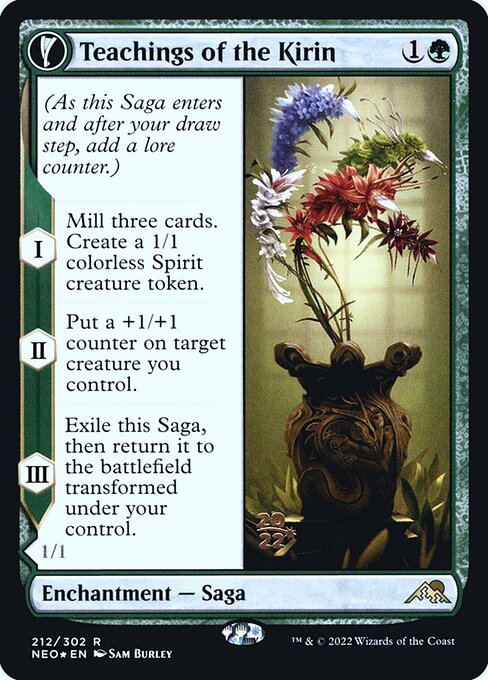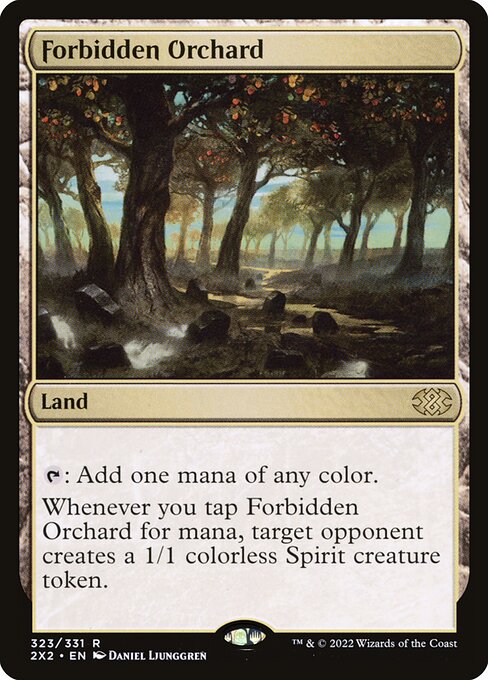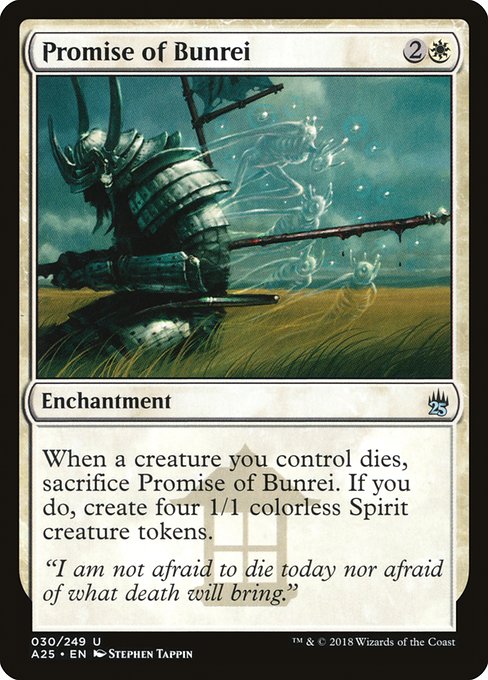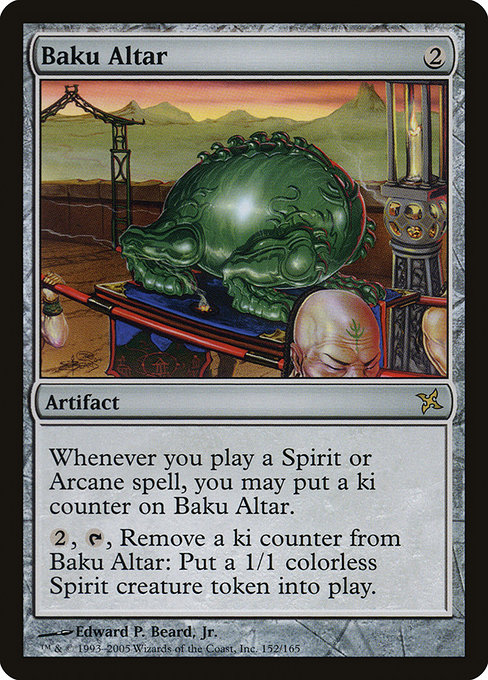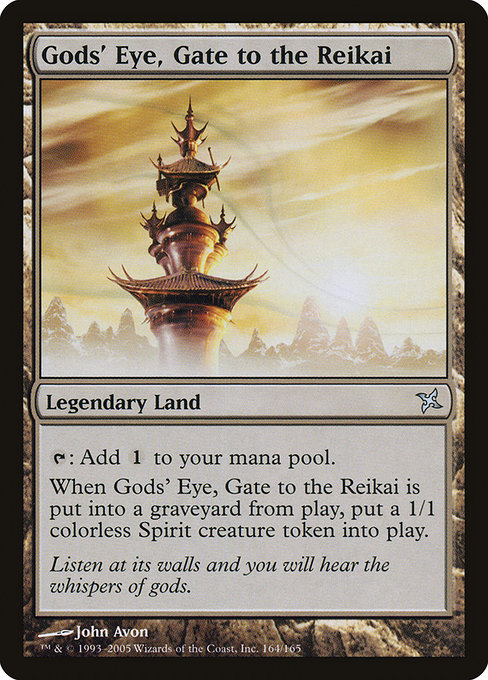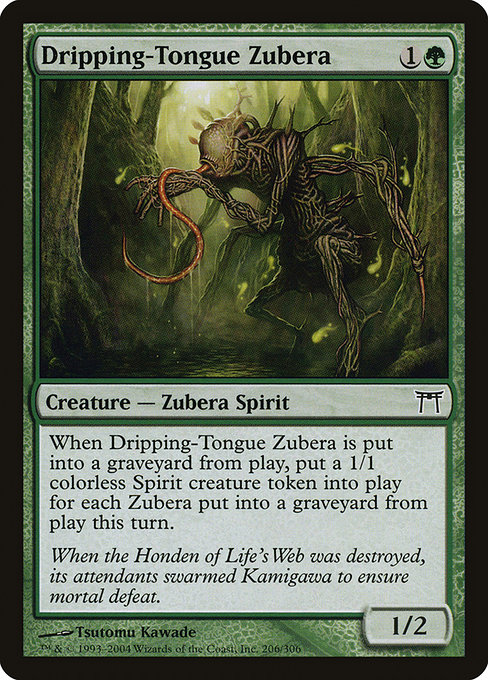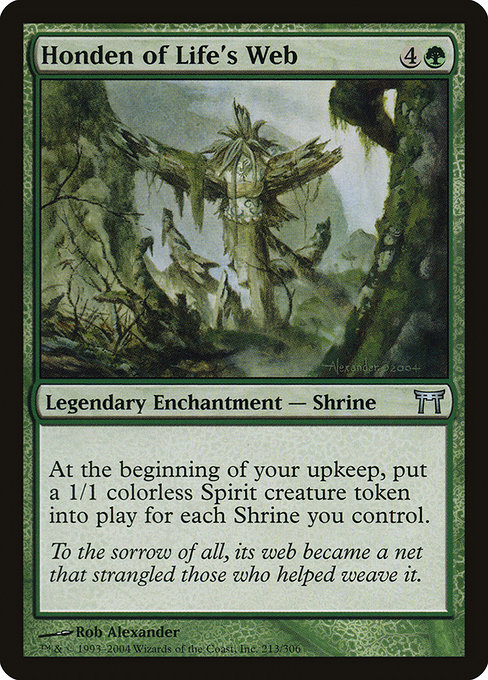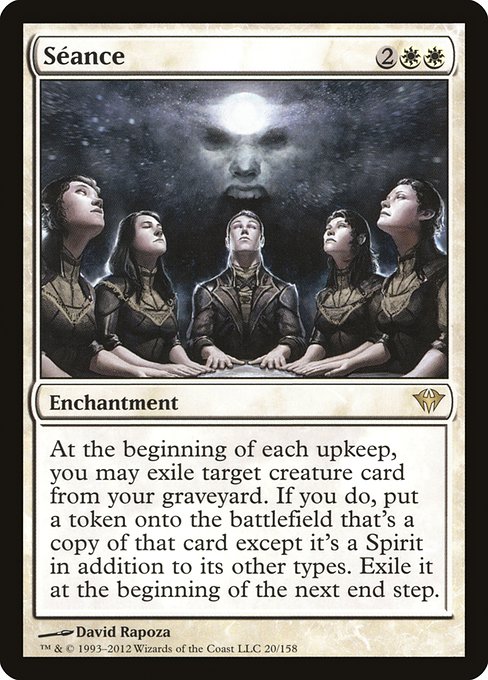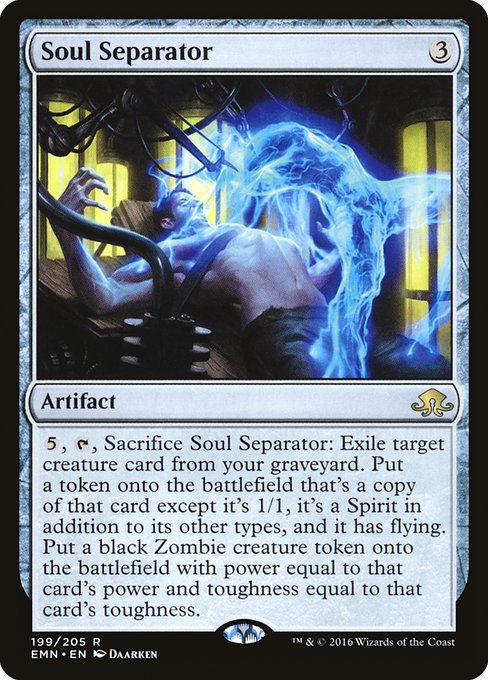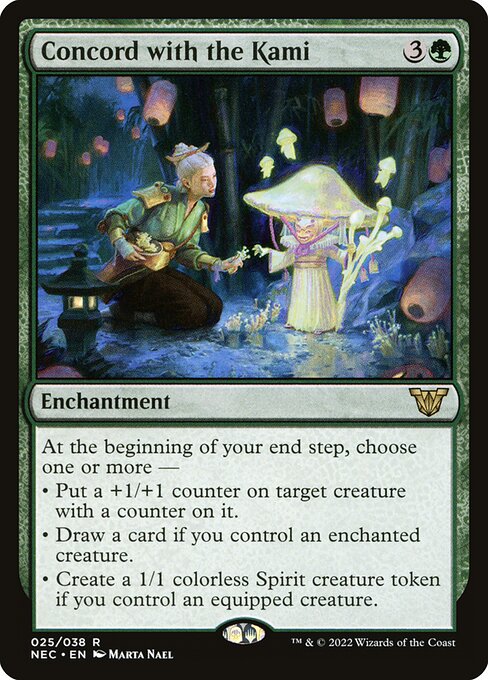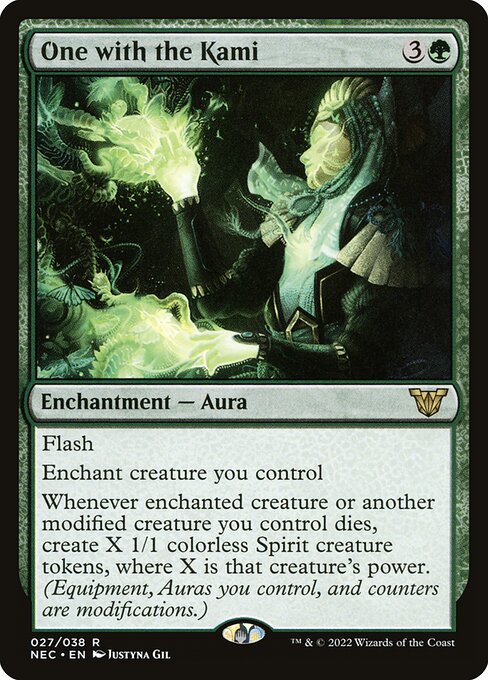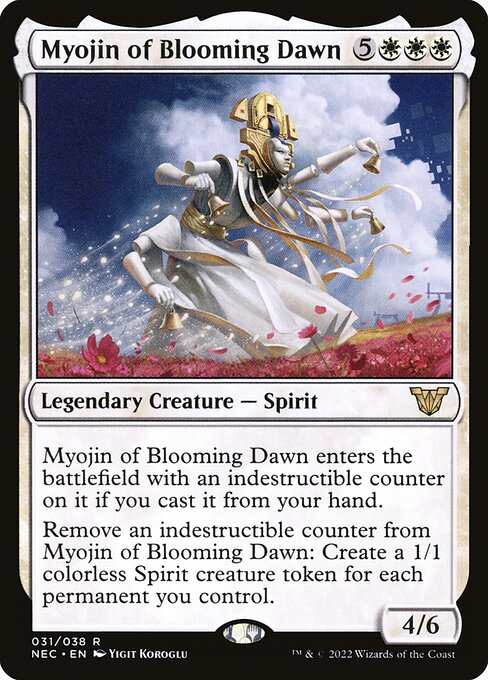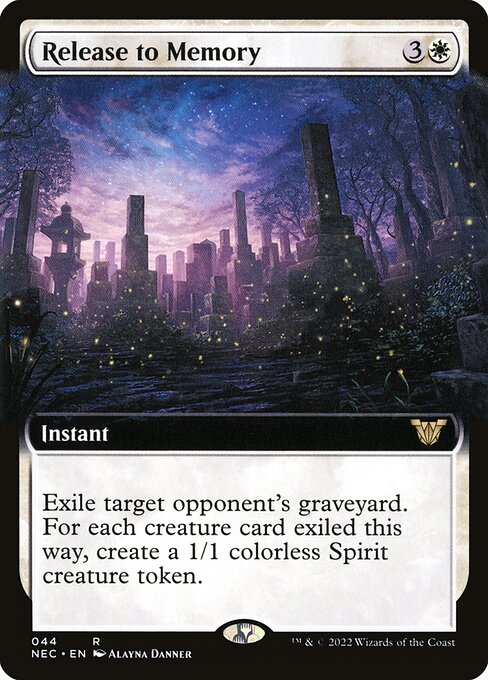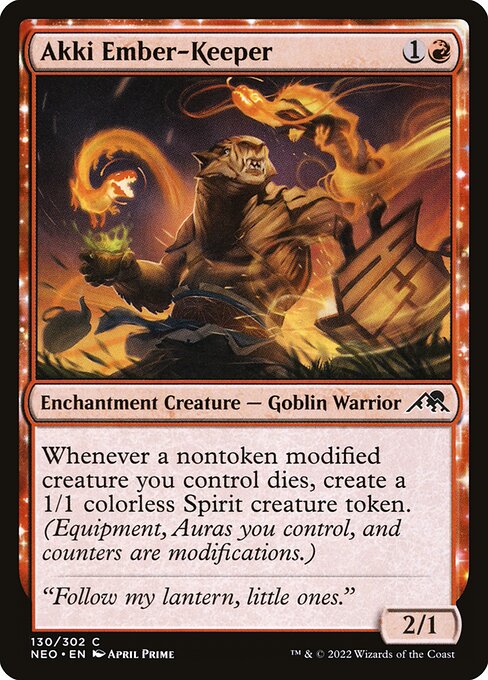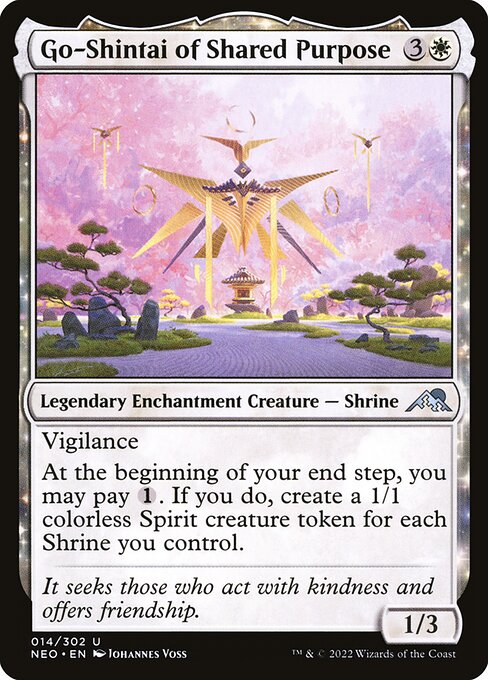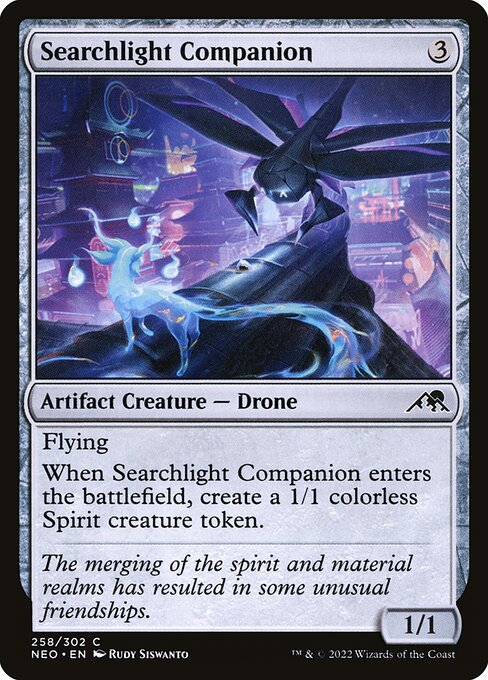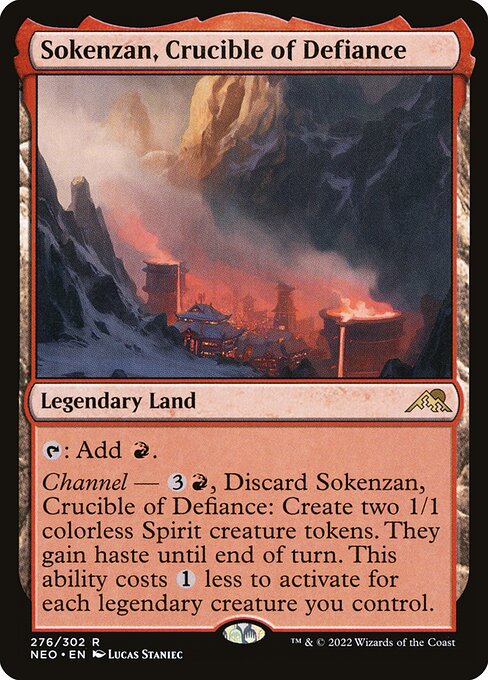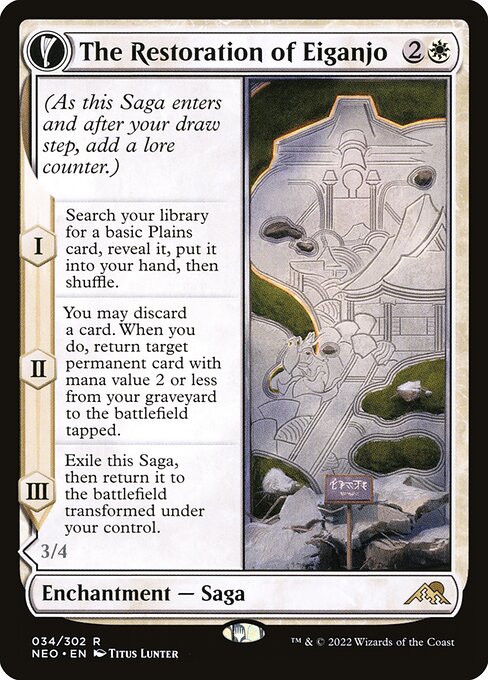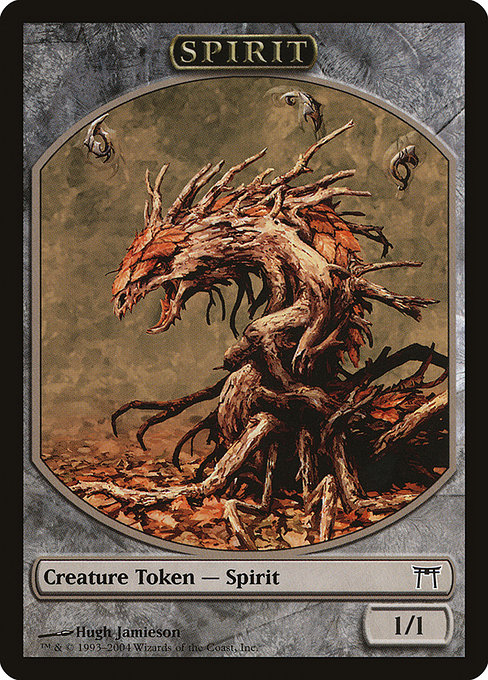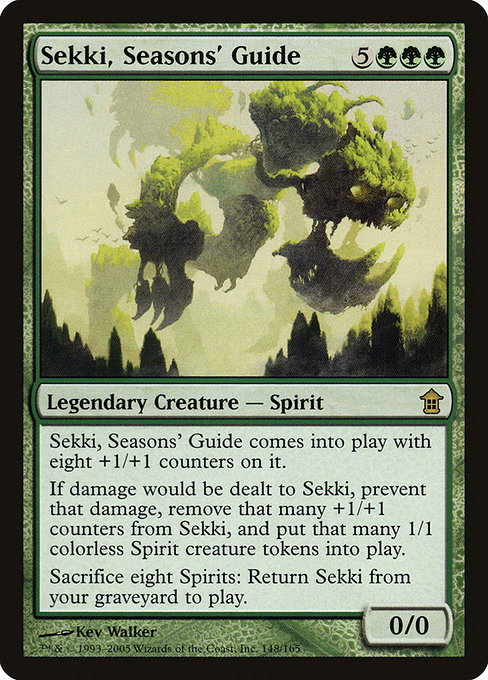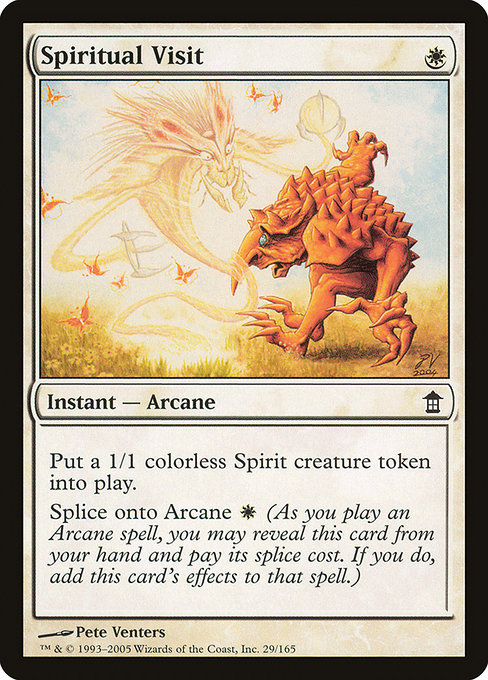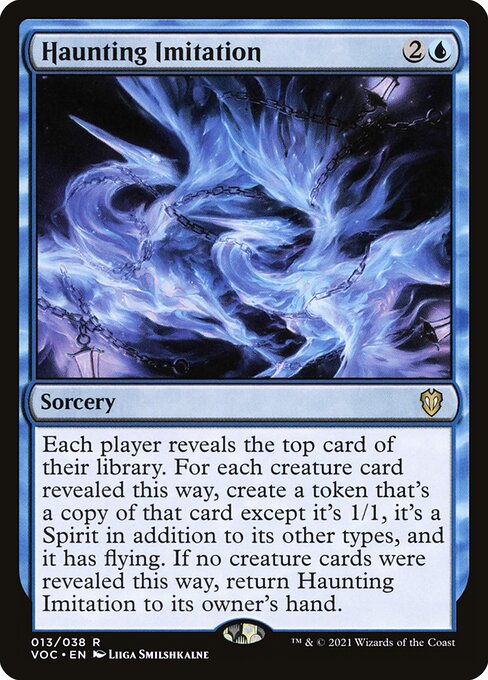Insegnamenti dei Kirin // Orochi Toccato dai Kirin
//
Incantesimo — Saga // Creatura Incantesimo — Monaco Serpente
(Mentre questa Saga entra e dopo la tua sottofase di acquisizione, aggiungi un segnalino sapere.)
I — Macina tre carte. Crea una pedina creatura Spirito 1/1 incolore.
II — Metti un segnalino +1/+1 su una creatura bersaglio che controlli.
III — Esilia questa Saga, poi rimettila sul campo di battaglia trasformata sotto il tuo controllo. // Ogniqualvolta l'Orochi Toccato dai Kirin attacca, scegli uno —
• Esilia una carta creatura bersaglio da un cimitero. Quando lo fai, crea una pedina creatura Spirito 1/1 incolore.
• Esilia una carta non creatura bersaglio da un cimitero. Quando lo fai, metti un segnalino +1/+1 su una creatura bersaglio che controlli.
I — Macina tre carte. Crea una pedina creatura Spirito 1/1 incolore.
II — Metti un segnalino +1/+1 su una creatura bersaglio che controlli.
III — Esilia questa Saga, poi rimettila sul campo di battaglia trasformata sotto il tuo controllo. // Ogniqualvolta l'Orochi Toccato dai Kirin attacca, scegli uno —
• Esilia una carta creatura bersaglio da un cimitero. Quando lo fai, crea una pedina creatura Spirito 1/1 incolore.
• Esilia una carta non creatura bersaglio da un cimitero. Quando lo fai, metti un segnalino +1/+1 su una creatura bersaglio che controlli.
1/1
standard
future
historic
gladiator
pioneer
explorer
modern
legacy
pauper
vintage
penny
commander
brawl
alchemy
paupercommander
duel
oldschool
premodern
Rulings
A transforming double-faced card enters the battlefield with its front face up by default, unless a spell or ability instructs you to put it onto the battlefield transformed or you cast it transformed, in which case it enters with its back face up.
The back face of a transforming double-faced card usually has a color indicator that defines its color.
The mana value of a transforming double-faced card is the mana value of its front face, no matter which face is up.
Each transforming double-faced card in this set is cast face up. In every zone other than the battlefield, consider only the characteristics of its front face. If it is on the battlefield, consider only the characteristics of the face that's up; the other face's characteristics are ignored.
Each face of a transforming double-faced card has its own set of characteristics: name, types, subtypes, abilities, and so on. While a transforming double-faced permanent is on the battlefield, consider only the characteristics of the face that's currently up. The other set of characteristics is ignored.
If you are instructed to put a card that isn't a double-faced card onto the battlefield transformed, it will not enter the battlefield at all. In that case, it stays in the zone it was previously in. For example, if a single-faced card is a copy of Azusa's Many Journeys, the chapter III ability will cause it to be exiled and then remain in exile.
The back face of a transforming double-faced card usually has a color indicator that defines its color.
The mana value of a transforming double-faced card is the mana value of its front face, no matter which face is up.
Each transforming double-faced card in this set is cast face up. In every zone other than the battlefield, consider only the characteristics of its front face. If it is on the battlefield, consider only the characteristics of the face that's up; the other face's characteristics are ignored.
Each face of a transforming double-faced card has its own set of characteristics: name, types, subtypes, abilities, and so on. While a transforming double-faced permanent is on the battlefield, consider only the characteristics of the face that's currently up. The other set of characteristics is ignored.
If you are instructed to put a card that isn't a double-faced card onto the battlefield transformed, it will not enter the battlefield at all. In that case, it stays in the zone it was previously in. For example, if a single-faced card is a copy of Azusa's Many Journeys, the chapter III ability will cause it to be exiled and then remain in exile.
Rulings
A transforming double-faced card enters the battlefield with its front face up by default, unless a spell or ability instructs you to put it onto the battlefield transformed or you cast it transformed, in which case it enters with its back face up.
The back face of a transforming double-faced card usually has a color indicator that defines its color.
The mana value of a transforming double-faced card is the mana value of its front face, no matter which face is up.
Each transforming double-faced card in this set is cast face up. In every zone other than the battlefield, consider only the characteristics of its front face. If it is on the battlefield, consider only the characteristics of the face that's up; the other face's characteristics are ignored.
Each face of a transforming double-faced card has its own set of characteristics: name, types, subtypes, abilities, and so on. While a transforming double-faced permanent is on the battlefield, consider only the characteristics of the face that's currently up. The other set of characteristics is ignored.
If you are instructed to put a card that isn't a double-faced card onto the battlefield transformed, it will not enter the battlefield at all. In that case, it stays in the zone it was previously in. For example, if a single-faced card is a copy of Azusa's Many Journeys, the chapter III ability will cause it to be exiled and then remain in exile.
The back face of a transforming double-faced card usually has a color indicator that defines its color.
The mana value of a transforming double-faced card is the mana value of its front face, no matter which face is up.
Each transforming double-faced card in this set is cast face up. In every zone other than the battlefield, consider only the characteristics of its front face. If it is on the battlefield, consider only the characteristics of the face that's up; the other face's characteristics are ignored.
Each face of a transforming double-faced card has its own set of characteristics: name, types, subtypes, abilities, and so on. While a transforming double-faced permanent is on the battlefield, consider only the characteristics of the face that's currently up. The other set of characteristics is ignored.
If you are instructed to put a card that isn't a double-faced card onto the battlefield transformed, it will not enter the battlefield at all. In that case, it stays in the zone it was previously in. For example, if a single-faced card is a copy of Azusa's Many Journeys, the chapter III ability will cause it to be exiled and then remain in exile.
Your collection? Your decks?
Want to manage your collection and/or create decks?
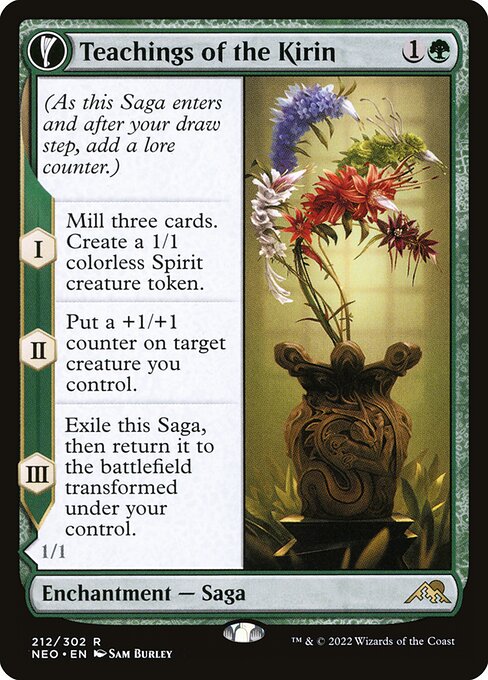

 0
0
 0.12€
0.12€
